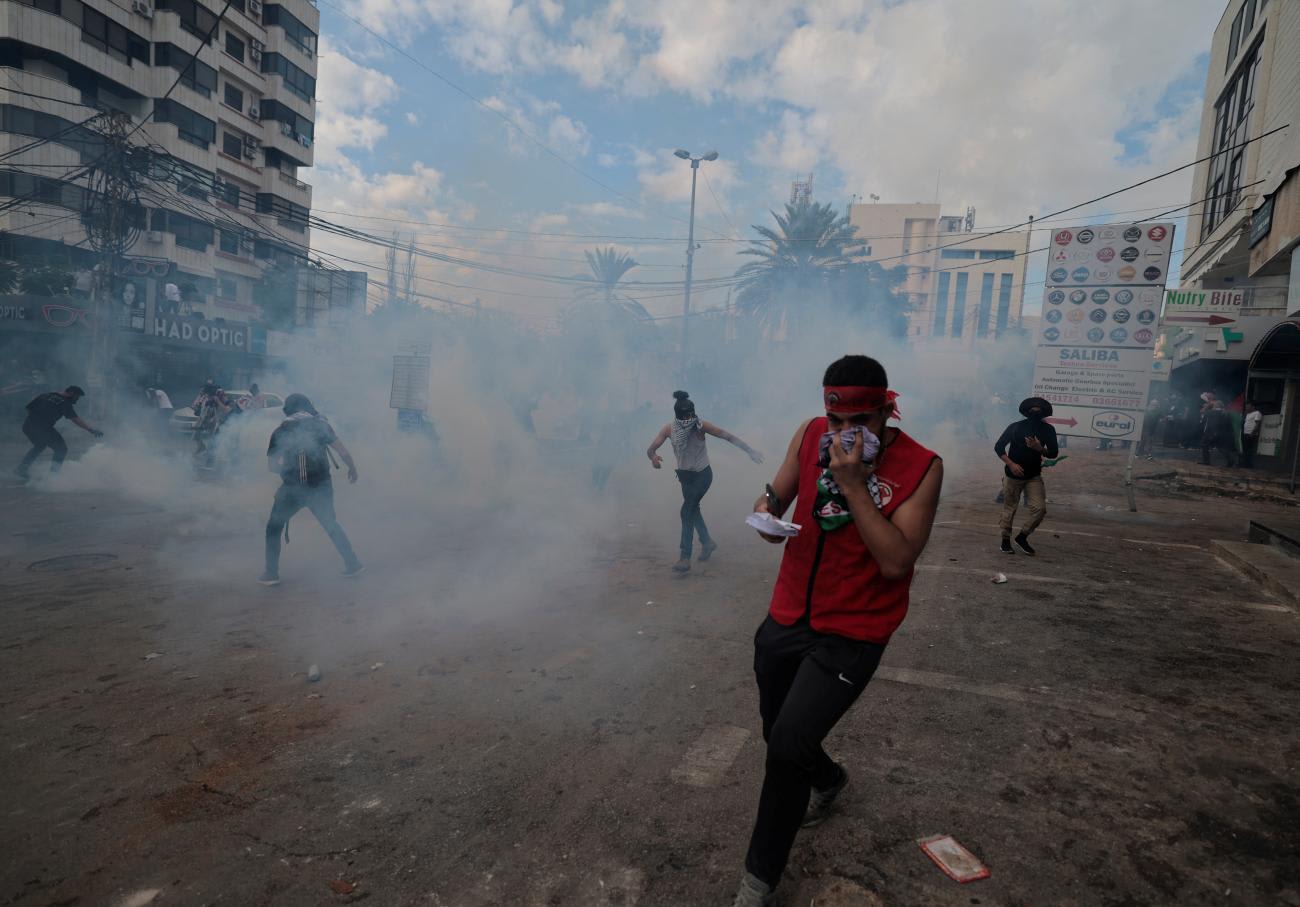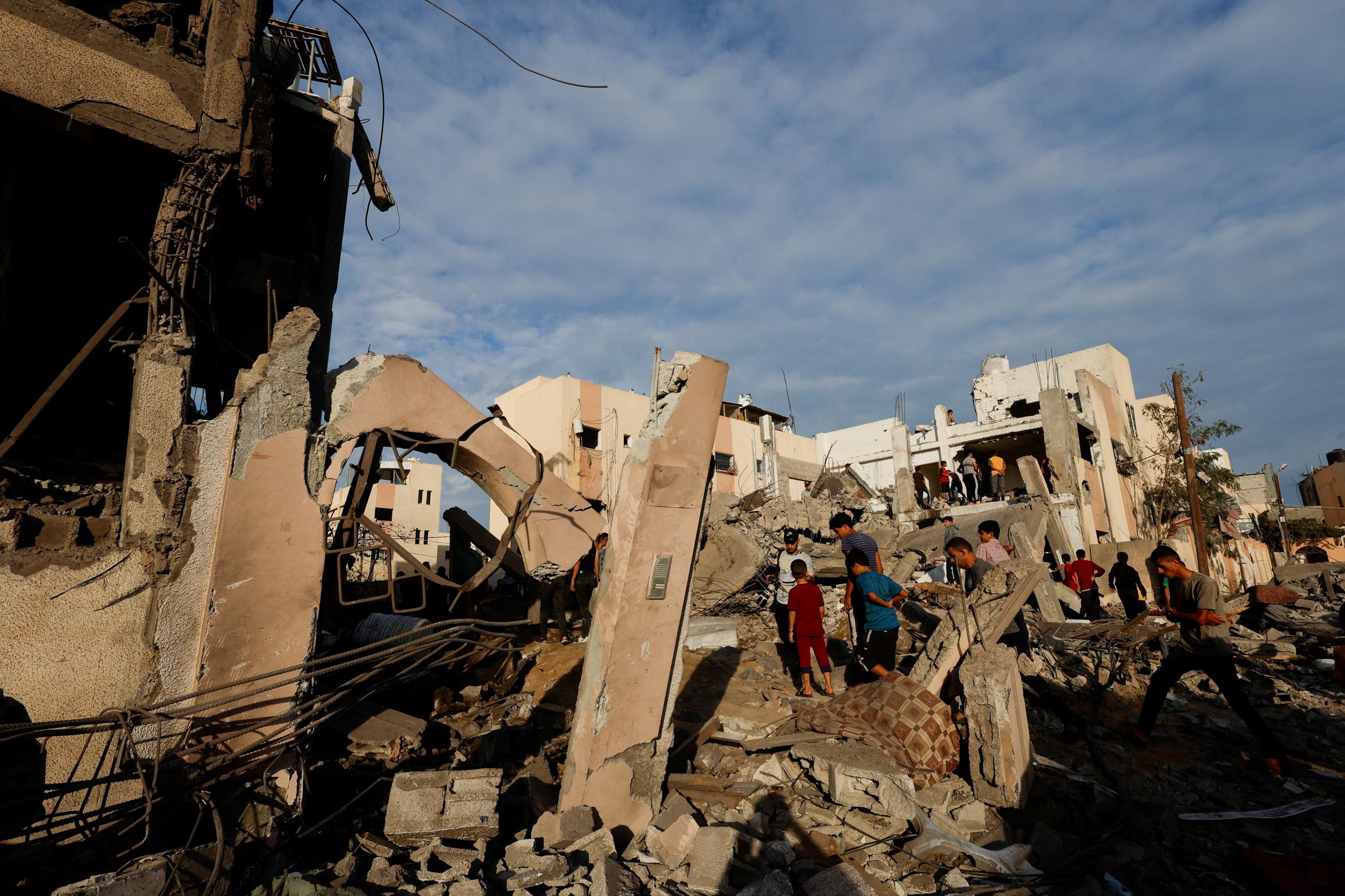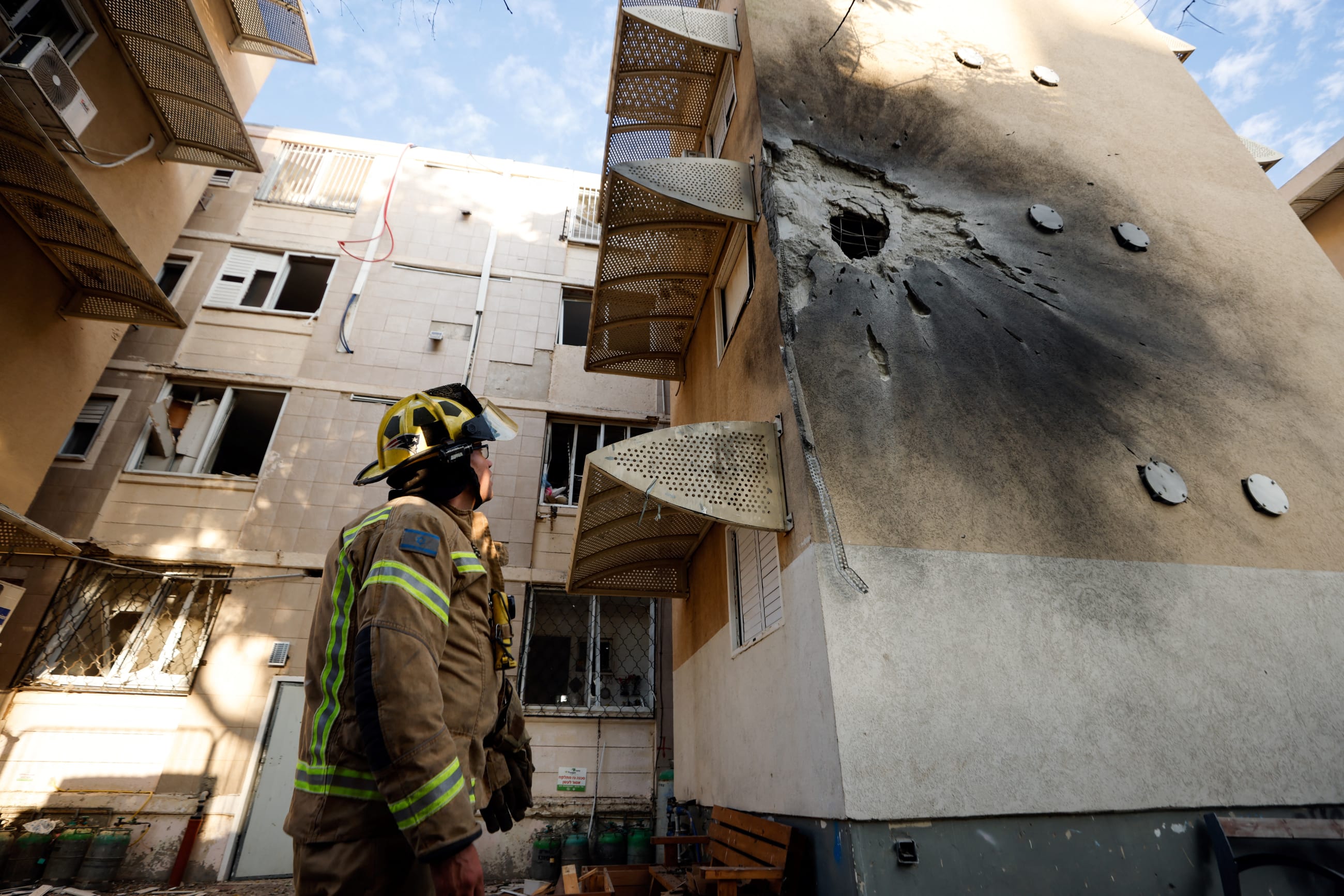The attacks by Hamas on October 7 have plunged Israelis and Palestinians into armed conflict. The scale, sophistication, and brutality of the attacks went beyond previous violence between Israel and Hamas. Israeli responses are also proving to be more severe. The shockwaves of "Israel's 9/11" reverberate far from the border between Israel and the Gaza Strip.
The causes of the violence arise outside global health, but the aftershocks will damage efforts to address global health problems. That damage will extend beyond how war zones maim minds and bodies, destroy medical facilities, wreck public health infrastructure, and batter social determinants of health. In particular, the Israeli-Hamas conflict will make the political determinants of global health worse as a COVID-battered world confronts climate change.
War, War Not Jab, Jab
Winston Churchill once said, "Meeting jaw to jaw is better than war." Others rephrased the quip as "jaw, jaw is better than war, war." In global health, discussing how to vaccinate people beats waging war. Unfortunately, a pandemic characterized by inequitable vaccine access has faded amid an epidemic of armed conflicts, threats of military action, military coups, violence by nonstate actors, arms races, and a new Cold War.
The causes of the current war do not originate in the health sector and will not be resolved by health strategies
Such a conflict-ridden world underscores how little health matters when governments, insurgents, terrorists, and transnational criminal organizations choose violence over negotiation. The Israel-Hamas war and other armed conflicts darken the shadow that hovers over the health for peace approach embraced by the World Health Organization (WHO). The approach posits that health strategies can contribute to peaceful outcomes of conflicts and facilitate peaceful resolution of them. Those propositions overestimate health's importance in why political actors resort to violence and what they want in postconflict settings.
Since 2007, Hamas has governed the Gaza Strip, where health outcomes have long been poor. Those outcomes arose from how Hamas pursued an extremist agenda to maximize its ability to fight Israel and how Israel countered security threats from the Gaza Strip. The causes of the current war do not originate in the health sector and will not be resolved by health strategies.
Those causes reflect injustices that Jews and Palestinians have suffered, contested concepts of nationhood, incompatible desires for the same homeland, zero-sum competition over sovereignty, unequal economic opportunities, religious frictions, and the machinations of outside powers. Failures to reach a settlement have now led to war between the most anti-Palestinian Israeli government in decades and a Palestinian faction virulently hostile to Israel.

Thinking and Acting in Terms of Interests Defined by Violence
Hans Morgenthau argued that "statesmen think and act in terms of interest defined as power." History records that competition over the balance of power and ideology increases the willingness of governments to threaten and use force to protect their interests. Reflecting that pattern, the return of geopolitics over the past decade helps explain the proliferation of violent events—and the potential for more violence—around the world.
Geopolitics have adversely affected responses to COVID-19, efforts to improve post-COVID pandemic readiness, climate change diplomacy, and plans to address other global health problems. Geopolitical friction associated with, for example, the Ukraine war and competition between China and the United States is intensifying.
The war between Israel and Hamas will have geopolitical consequences. For example, it threatens the Joe Biden administration's desire to achieve rapprochement between Israel and Saudi Arabia to counter Iranian and Chinese influence in the Middle East. The need to support Israel has raised worries that U.S. willingness to help Ukraine will weaken, which could have potentially catastrophic consequences for the balance of power. With another war burdening the United States, China could be emboldened to increase its global power and influence.
Assisting Ukraine, supporting Israel, and countering Chinese opportunism will strain U.S. political, military, and financial resources. The burden of managing geopolitics will push global health lower on the list of U.S. foreign policy priorities. For example, the costs of responding to the Israel-Hamas conflict could damage prospects for meaningful U.S. foreign aid on global health threats, such as climate change.
The burden of managing geopolitics will push global health lower on the list of U.S. foreign policy priorities
Ideas All the Way Down
The geopolitical impact has other features. Before Hamas attacked, the United States, other Western democracies, and Israel were on the ideological defensive. Democracy has been in global decline since the mid-2000s. The commitment to democratic governance in the United States, Israel, and other democracies are burning issues. The Biden administration's democracy initiative has struggled to gain traction in the face of, among other things, a nonaligned movement among developing countries.
Unfortunately, the violence that began on October 7 creates opportunities for adversaries of the United States, Israel, and democratic governance to exploit, replaying previous geopolitical manipulations of the Israeli-Palestinian conflict. Such exploitation will highlight past Israeli and U.S. indifference to the plight of the Palestinians and the humanitarian catastrophe that Israel's responses against Hamas are creating. That stratagem can link the tragedy in the Gaza Strip to anger in the Global South about U.S. behavior concerning the pandemic and climate change.
The Israel-Hamas conflict could also damage global health endeavors by reigniting extremist ideologies and violence against Israel and the United States. Although terrorism did not disappear after the Islamic State's decimation, the terrorist threat faded for the United States as geopolitical challenges mounted. The need to manage geopolitics and a resurgence of terrorism would burden the United States and further sideline global health in foreign policy.
Something Wicked This Way Comes
As bad as the situation between Israel and Hamas is now, the conflict could get worse. It could escalate regionally through military action by governments and violence by extremists. In responding to the October 7 attacks, Israel bombed Syrian airfields linked to channeling Iranian support to Hezbollah and Hamas—underscoring the risk of the conflict spreading. Terrorist attacks on American soil or against U.S. targets abroad would lead to military action against extremist groups and countries supporting them.
Escalation of the war would devour scarce resources, divert diplomatic capabilities, and deepen animosities that complicate peacemaking. That scenario could unfold as the United States faces mounting difficulties helping Ukraine against Russian aggression and countering Chinese ambitions in Africa, Asia, and Latin America. This convergence of wicked problems could set back U.S. foreign policy action on global health.
Getting Beyond Triage?
The draft roadmap for the WHO's Global Health and Peace Initiative states that the initiative seeks to strengthen the health sector's contributions to "improving the prospects for peace." For the immediate future, the health sector has its hands full staunching the carnage of the Israel-Hamas war.
Fulfilling that task will not improve prospects for peace between Israelis and Palestinians. The war has violently shifted every dangerous fault line in Israeli-Palestinian relations, producing an earthquake that health idealism cannot stop or stabilize. In addition, the war's eruption during the current global "moment of anarchically fragmenting power" makes its aftershocks more dangerous for health and peace.
The COP28 meeting on climate change later this year will provide an opportunity to assess how the war has affected global health action, especially given COP28's interest in the climate-health nexus. Prospects for the meeting were troubled before Israel and Hamas went to war. Ending the conflict will not address why climate diplomacy has failed for decades. A prolonged or expanded war could make finding common ground at COP28 more difficult at a moment when nations have almost run out of time to confront climate change.
That outcome would leave the health sector where it always finds itself in times of war—engaging in triage with no ability to heal the political pathologies responsible for the violence.













